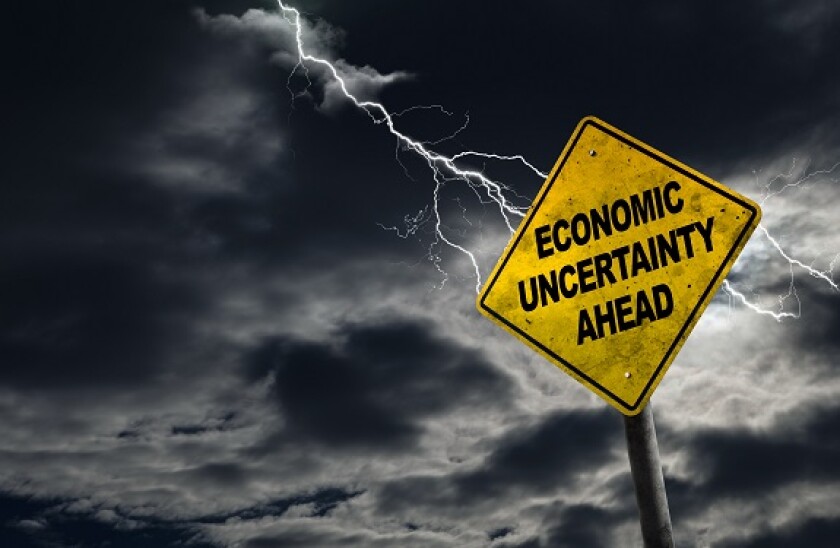UniCredit’s approach this week, in at least one respect, was refreshing. Ahead of its first quarter results in early May, the bank said that it expects to take an additional €900m in loan loss provisions to account for the damage caused by Covid-19.
While that might or might not be an accurate forecast of ex-post losses — some analysts are forecasting that Italian banks could face bad debts of more than 50 times that number over the coming years due to the coronavirus — it is based on a conservative macroeconomic assumption for its IFRS-9 modelling of a 13% decline in eurozone GDP in 2020, more severe than the IMF’s forecast of a 7.5% decline.
UniCredit is a global systemically important bank, Italy is being severely hit by Covid-19, and UniCredit lends largely in Italy. There is no way around it: UniCredit will take a hit and it understood that.
It’s an encouraging sign for the approaching first quarter results season for European banks, following the $25bn of provisions already announced by the leading US lenders in their Q1 numbers. Market participants were sanguine about the announcement. UniCredit’s share price went up almost 2% on the day it disclosed these provisions and its bond spread levels tightened.
In this environment, investors will tolerate short-term bad news but only if they have confidence in the numbers that management are reporting. Low-balling now and then surprising on the downside will only store up worse pain to come.
Communicating early, and being clear about the assumptions made, even if they are shrouded in doubt, as UniCredit has done, is the best way to win trust and navigate through the crisis.

